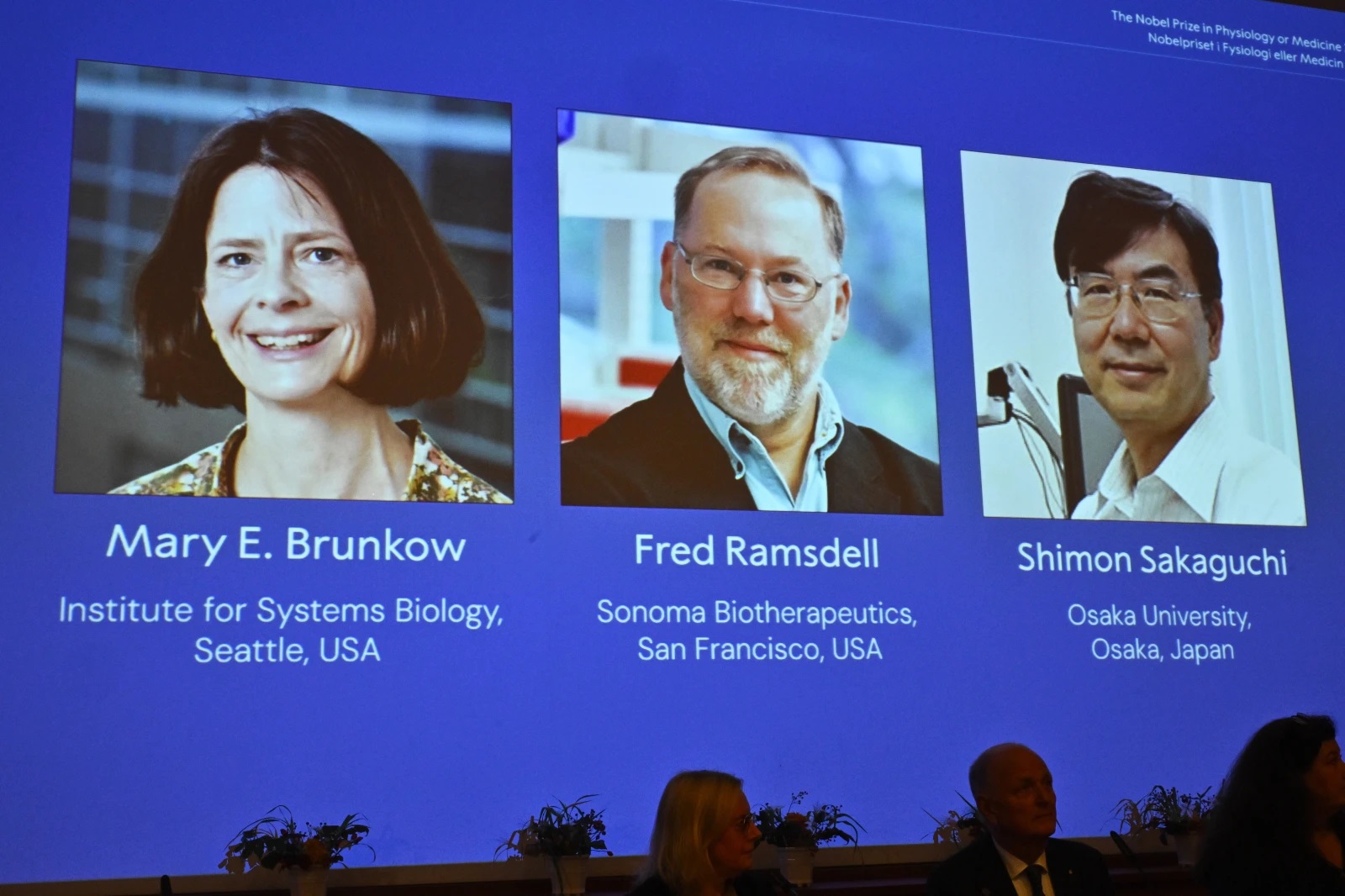Scientists Win 2025 Nobel Prize in Medicine for Immune System Discovery

The 2025 Nobel Prize in Physiology or Medicine was awarded to three researchers who uncovered how the immune system protects the body from self-attack—a major advance in understanding autoimmune disease and immune regulation.
Quick Insight: Their work centers on **regulatory T cells** and the mechanism called **peripheral immune tolerance**, which prevents the immune system from attacking healthy cells.
1. What the Discovery Reveals
• The laureates identified how specialized immune cells (regulatory T cells) act as “brakes” to stop overactive immune responses.
• They demonstrated how these cells maintain **immune self-tolerance**, avoiding attacks on the body’s own tissues.
• Central to their findings is the **FOXP3 gene**, which plays a key role in programming regulatory T cells.
• Their combined research spans fundamental experiments in animal models and human disease contexts.
2. Why It Matters for Medicine & Biology
• This discovery helps explain why autoimmune diseases occur: when regulatory T cell function fails, the immune system can turn on the body itself.
• It opens potential paths for therapies that **boost or modulate** regulatory T cells to treat conditions like type 1 diabetes, lupus, multiple sclerosis, and more.
• It may also aid in improving outcomes in **organ transplantation**, by reducing rejection through better immune control.
• In cancer research, the insight could inform how immune suppression or activation is balanced in immunotherapies.
3. Challenges & Future Directions
• Turning the discovery into reliable therapies is complex—fine-tuned control is needed to avoid over-suppressing the immune system.
• Safety, dosage, delivery mechanisms, and long-term effects must all be rigorously tested.
• Not all patients respond identically—individual genetic or environmental factors may influence outcomes.
• Future research may explore how regulatory T cell biology intersects with aging, infections, and cancer progression.
Global & African Reflections
• This Nobel recognition emphasizes that **immunology and molecular biology** remain frontier fields in medical science.
• For Africa, investing in life sciences, immunology research, and biotech infrastructure is crucial to participate in such breakthroughs.
• Local diseases—autoimmune disorders, infections, vaccine responses—can benefit from deeper understanding of immune regulation.
• Training researchers and fostering collaboration will help African institutions contribute and adapt global advances to local needs.
